Publications Routes/Roads Environment
This page lists Routes/Roads articles of PIARC in the field of environment. These publications are classified chronologically.
-
A Strategic Research Agenda for Biodiversity-Friendly Transport Infrastructure in Europe
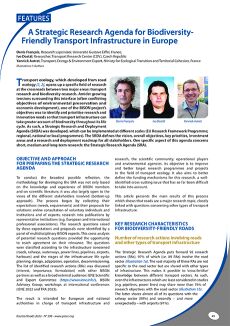
Transport ecology, which developed from road ecology, opens up a specific field of research at the crossroads between two major areas: transport research and biodiversity research. Amidst growing tensions surrounding this interface (often conflicting objectives of environmental preservation and economic development), one of the BISON project’s objectives was to identify and prioritise research and innovation needs so that transport infrastructure can take greater account of biodiversity throughout [...]
-
The Final Frontier - Meeting the Challenges of Linear Infrastructure in Africa
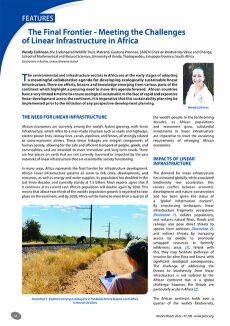
The environmental and infrastructure sectors in Africa are at the early stages of adopting a meaningful collaborative agenda for developing ecologically sustainable linear infrastructure. There are efforts, lessons and knowledge emerging from various parts of the continent which highlight a pressing need to move this agenda forward. African countries have a very limited timeline to ensure ecological sustainable in the face of rapid and expansive linear development across the continent. It is imperative [...]
-
From the 5th Generation Road to Roads of the Anthropocene – What are the Synergies between Digitalisation of Transport Infrastructures and Protection of Landscapes and Biodiversity?
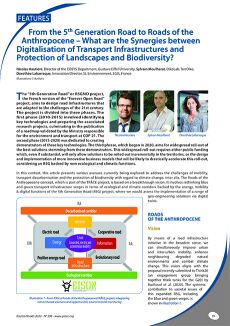
The “5th Generation Road” or R5GMD project, the French version of the “Forever Open Road” project, aims to design road infrastructures that are adapted to the challenges of the 21st century. The project is divided into three phases. The first phase (2010-2015) involved identifying key technologies and preparing the associated research projects, culminating in the publication of a roadmap validated by the Ministry responsible for the environment and transport at COP 21. The second phase (2015-2020) [...]
-
Capacity Building Tools for Raising Awareness about Biodiversity Mainstreaming: BISON E-learning Platform by SPECTRA
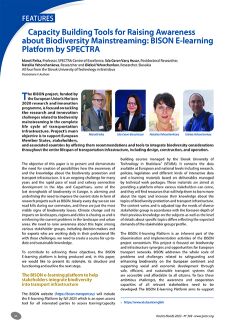
The BISON project, funded by the European Union’s Horizon 2020 research and innovation programme, is focused on tackling the research and innovation challenges related to biodiversity mainstreaming in the complete life cycle of transportation infrastructure. Project’s main objective is to support European Member States, stakeholders, and associated countries by offering them recommendations and tools to integrate biodiversity considerations throughout the entire lifespan of transportation infrastructure, [...]
-
Biodiversity and Infrastructure: An Online Handbook for Promoting Cooperation and Action
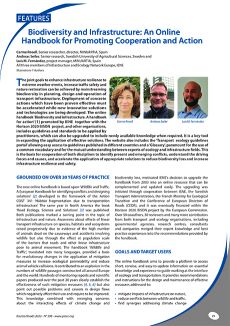
The joint goals to enhance infrastructure resilience to extreme weather events, increase traffic safety and nature restoration can be achieved by mainstreaming biodiversity in planning, design and operation of transport infrastructure. Deployment of concrete actions which have been proven effective must be accelerated while new innovative solutions and technologies are being developed. The online handbook ‘Biodiversity and infrastructure. A handbook for action’ promoted by IENE together with [...]